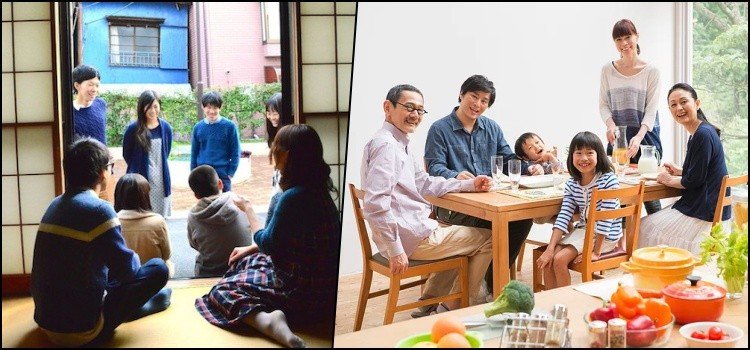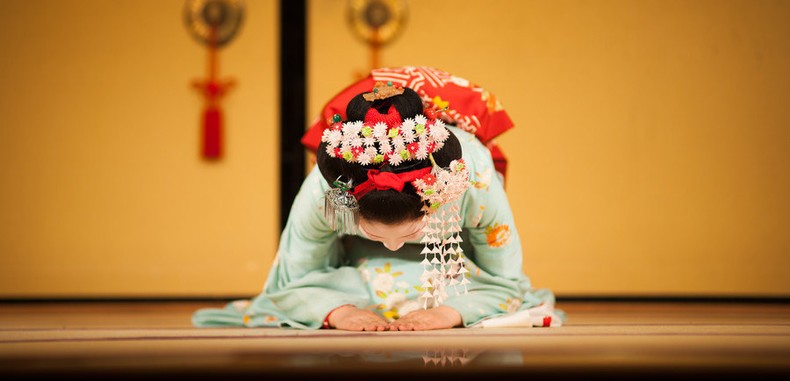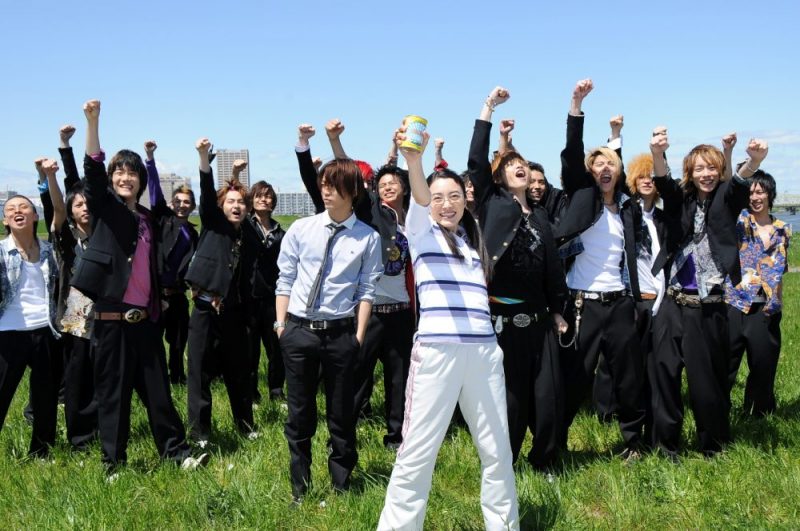We know that no place in the world is perfect. Although we constantly talk about the good things about Japan, we have to fix our eyes on the bad things from time to time. In this article we will talk about the main problems of Japan.
I previously wrote about the Dark Side of Japan. In that article I write in a generalized and critical way in response to another generalized article that talks about the good things and the lies about Japan.
Recently, I received a comment from a person named Demis Aoki. Following his request, I would like to share his beautiful comment in the form of an article. He is a Sansei graduated in IT and has lived in Japan 3 times.
Sometimes there is a big mistake in thinking that I am partial to Japan. In reality I just prefer not to go too deep into the subject due to the divided audience I have. I believe that looking at the positive points also brings more results to the site.
Sometimes I end up contradicting myself trying to be impartial. I always try to see the good side of things, after years of hating Brazil and its Culture, today I am content to live in this dangerous country trying to get the good out of it.
Despite agreeing with 100% with the comment below, I believe that there are still situations where we should apply shouganai. Not to mention that most of the time I only criticize generalizations.
Table of Content
Japan divided into 3 generations
The following words belong to Demis Aoki: Currently Japan is going through a complicated phase, where there are 3 conflicting generations within Japanese society.
- Generation between 1 and 17 years old
- Generation between 18 and 50 years old
- Generation above 51 years;
It is no secret that Japan is currently experiencing a serious shortage of manpower, due to the low birth rate, coupled with the mortality of the elderly, which in turn has a high longevity rate and this is ironically deteriorating the economy. from the country.
The issue is that Japan has a greater internal debt than the external one, so the generation between 18 and 50 years old is practically supporting the rest of the population, as the elderly represent practically 1/3 of the Japanese population.
Japan is a country known for overcoming it, but it turns out that the problem lies precisely in the conduct of Japanese society itself.
Obviously we should never generalize and although there are exceptions, the way I found to be able to understand part of the behavior of Japanese society is by dividing it into 2 simple groups: The educated and the uneducated.

It seems kind of obvious, but it happens that we often don't realize it, however, practically all societies in the world make this distinction and when it comes to the Japanese, this is quite considerable.
A very common misconception is to "think" that the Japanese are intelligent, however, this is much more linked to the Brazilian culture, where the Japanese were prominent and were present in most of the most disputed higher courses in Brazil, however, this is decreasing and today we see other nationalities like the Chinese displacing the Japanese.
The point is, knowing that Japan is an isolationist country in essence, nationalist and oppressive out of collective necessity, obviously this will have side effects.
Problems in Japan's factories
Brazil is a problematic country, but it does not compare with Japan for several factors that there is no need to mention because they are too obvious.
Apparently the oppression is a reflection of the culture of maintaining at all costs a system that supposedly works, however, this is not what the results are showing recently.
It is very common to see foreigners speak ill of the Japanese, but they forget to clarify that most of them are over 45 years old, occupy management positions without having any qualifications, because in Japan the culture of promotion of position by time of service is still adopted.

Of course, there are Japanese who work in a factory who are provided with sincere kindness and cherish values and principles. Currently, labor laws in Japan are stricter, but far from ideal for foreigners.
But this is a reflection where for us Brazilians, we are used to labor laws that are mostly in favor of the worker, however, in Japan, it is not quite like that.
Discrimination in Japan?
With regard to treatment and discrimination, it is evident that this exists all over the world, but we must understand that there are issues that must be observed. Being discriminated against in a commercial establishment is extremely rare and this would tarnish the establishment's image, but when it comes to a factory environment, it's another story.
Many foreigners feel discriminated against within factories, even though currently the Ministry of Labor monitors companies and limits overtime hours in order to combat corporate abuse and prevent new cases of karoshi [過労死].
In some companies, at the time of high productivity, it is still very common to see foreigners being coerced into working overtime without wanting to do it or need it, as there is a risk of the work contract that is already short, around 2 to 6 months at most not be renewed.

That is why it is very common to see foreigners subject to unjustifiable humiliation inside factories or changing jobs quite often.
Try to argue this, most Japanese factories don't hire foreigners directly, using contractors to outsource the labor, and when they do, require the foreigner to take a language test to perform a service that doesn't require the language?
What would be the justification for a company to take tests for a foreigner to carry out tasks considered simple and that do not require mastery of the language?
People need to be more careful when referring to the fact that there are “many” foreigners occupying important positions within companies, just to justify the empathy they have with Japan.
The behavior of the Japanese
The truth is that there are many variables that define the behavior of the Japanese, but what is deteriorating society in general is the fact that they do not have the skills to relate to what is different.
If we Westerners have a hard time dealing with relationship problems, imagine the Japanese?
Prioritizing the rebuilding of the nation after a war or catastrophe is understandable, but forgetting to turn our eyes to those who make it up doesn't make much sense.
That is, standardizing behaviors in a militarized way may have worked for a while and in that particular situation, but it does not seem to me to be so advantageous in the long term, especially if all this formality ends up extending to the family, causing distance in affective relationships.
True relationships require spontaneity, generating intimacy; otherwise, they'll revert to the time of arranged marriage "MIAI", and nowadays, I don't believe it would work.
Unfortunately this is not just the fault of the Japanese, but also the media and all of us who share misconceptions we have about them.

Just as an example, some time ago, I watched a video from a channel where a large Influencer Digital (without wanting to name names) at a certain moment comments on the oral hygiene of the Japanese, in which she makes a biased comment, perhaps due to being married to a Japanese.
The strange thing is that she tries to argue without success and contradicts herself, citing that they use a spray and that the research was done only in office environments where it said that 70% of the Japanese brush their teeth, Japan being a highly industrialized country. where 60% of the companies are small, medium and large factories.
In other words, it seems that the fact that the Japanese do not have adequate oral hygiene will diminish what they represent for the rest of the world. It would be the same thing as not wanting to recognize that Brazil is a violent country!
I can't understand this kind of positioning, where the person gives up their principles to defend something they don't really agree with.
By the way, during all 10 years living in Japan, I saw only 2 Japanese people brush their teeth after lunch and that doesn't mean we Brazilians are better or a reference in oral health, just that most Japanese don't usually brush their teeth and that's it. (as well as many other countries).
Commentary conclusion
Demis Aoki ends his comment saying that acknowledging Japan's problems doesn't make it bad. We must accept that the world is not perfect, much less Japan. Improve your way of thinking!
He states that Japan has many opportunities, but it also has many serious problems that need to be fixed.
Perhaps readers have not understood very well the issues addressed in this article. The essential point is that many complain about these aspects of Japan, while I personally prefer to ignore and accept them.
I always use the illustration of a white sheet with black dots. Everyone who looks at the sheet will only pay attention to the black dots and not the white. I personally prefer to look at the white (the good things) of the sheet in order to have a better life.
Just experiencing such a reality to feel disgust to the point of criticizing such aspects. My reality is totally different from everyone else, so it turns out that I am not affected by the problems mentioned in the article, which does not make me sympathize.
But as Demis himself commented, we must accept that the world is not perfect. Unfortunately, many do not accept this, and they end up generalizing and creating hatred for the nation instead of just for those involved.
Of course, the subject is too complex to be discussed in this article alone. In addition, it is difficult for any of the people involved to have a completely unbiased opinion.
If you want to know more about my point of view on Japan's complaints or problems, we recommend reading the articles below:
- The problem of social struggles and movements
- Do the Japanese really work hard?
- The truth about Japan's suicides
I thank Demis Aoki for giving this beautiful comment. If you liked the article, share it with your friends and leave your comments. We hope to receive more opinions and articles to further increase the content of this site.
